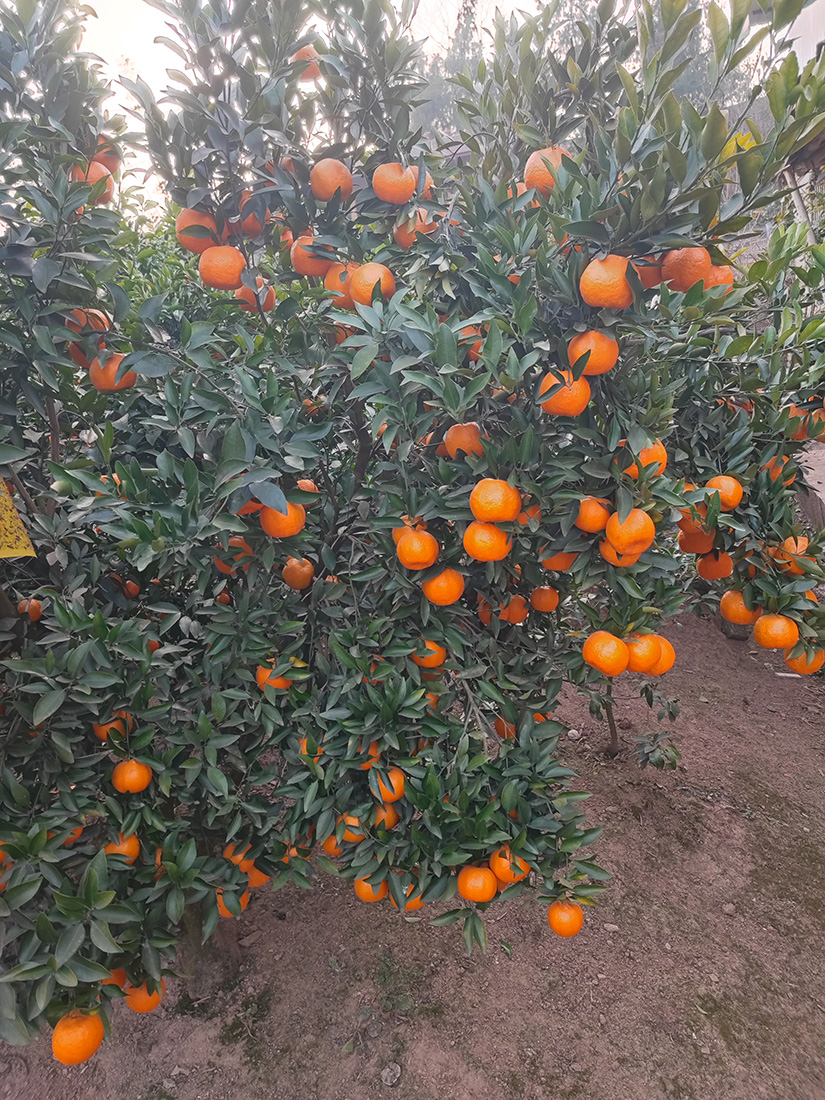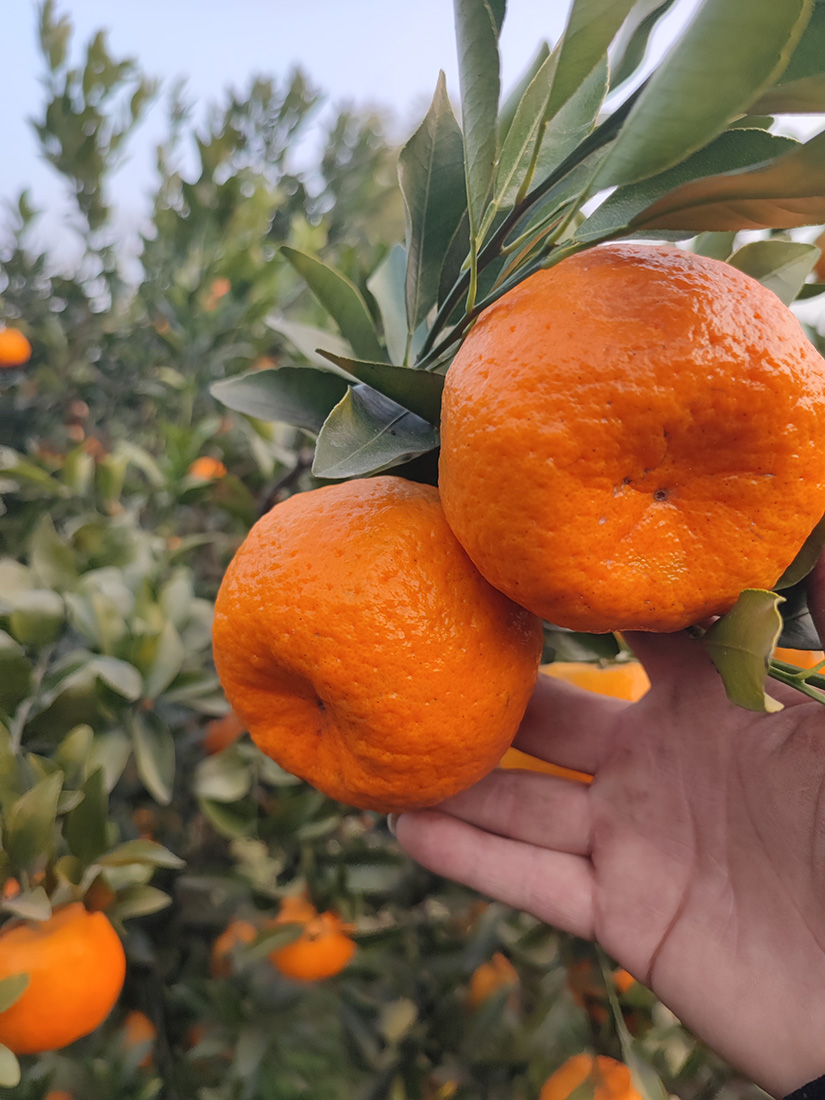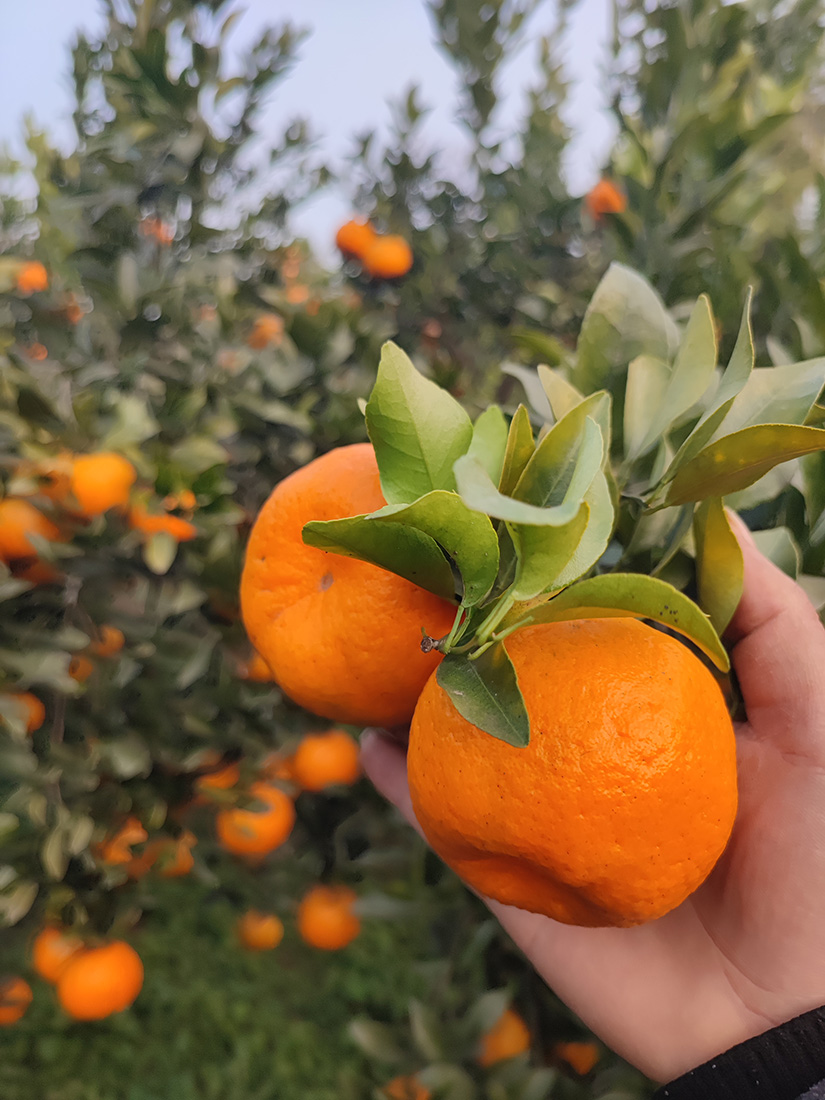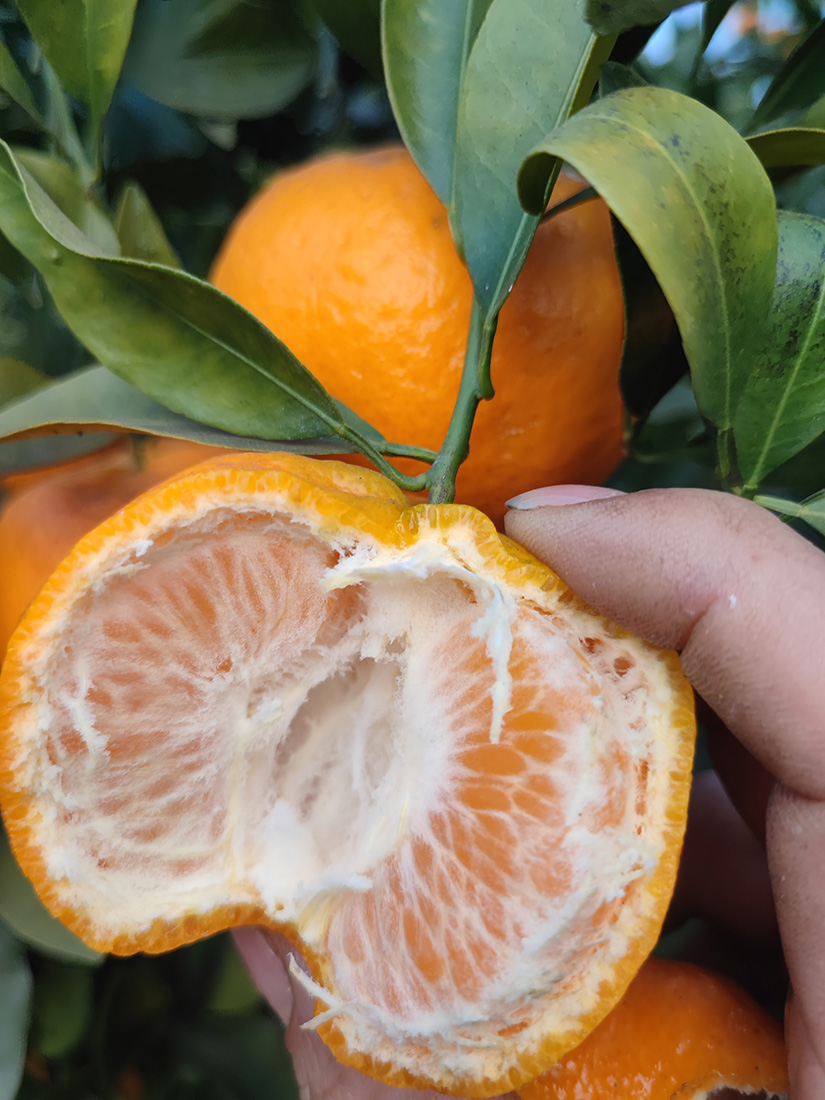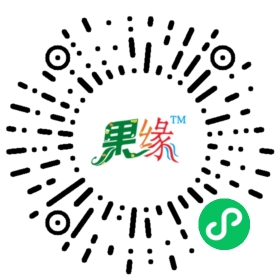Ponkan, a woody plant of the Citrus genus in the Rutaceae family, has leaves that are elliptical or broadly ovate in shape; Flowers solitary or clustered; The fruit is flattened and round, with a raised stem, a flat and wide top, a concave center, and an orange yellow to orange red color. It has a high oil content, rough skin, juicy flesh, and a sweet taste; The flowering period is from April to May, and the fruiting period is from November to December. Pong is a local dialect in eastern Guangdong and southern Fujian, which means pine bark or hollow, hence the name Ponkan.
China is the country of origin of ponkan, mainly produced in Taiwan, southern Fujian, eastern Guangdong, and southern Sichuan. It is also grown in climate zones ranging from the northern subtropical to the marginal tropical regions. Ponkan has a wide adaptability and is an evergreen fruit tree in tropical and subtropical regions. It prefers warm and humid weather rather than cold, and is more sensitive to low temperatures than deciduous fruit trees. There are various methods for the propagation of Ponkan seedlings, such as grafting, fruiting, pruning, and splitting, but grafting is mainly used in production.
The fruit of Ponkan is rich in nutrients, with excellent color, aroma, and taste. It is easy to peel and convenient for fresh consumption. Ponkan can be processed into fruit juice drinks, candied fruits, fruit wine, and jam for consumption. The book "Bencao Yanyi" records that ponkan has the effects of clearing heat, stopping body fluids, sobering up and diuresis. Commonly used for treating chest and diaphragm discomfort, thirst and thirst, drunkenness, and difficulty urinating.
